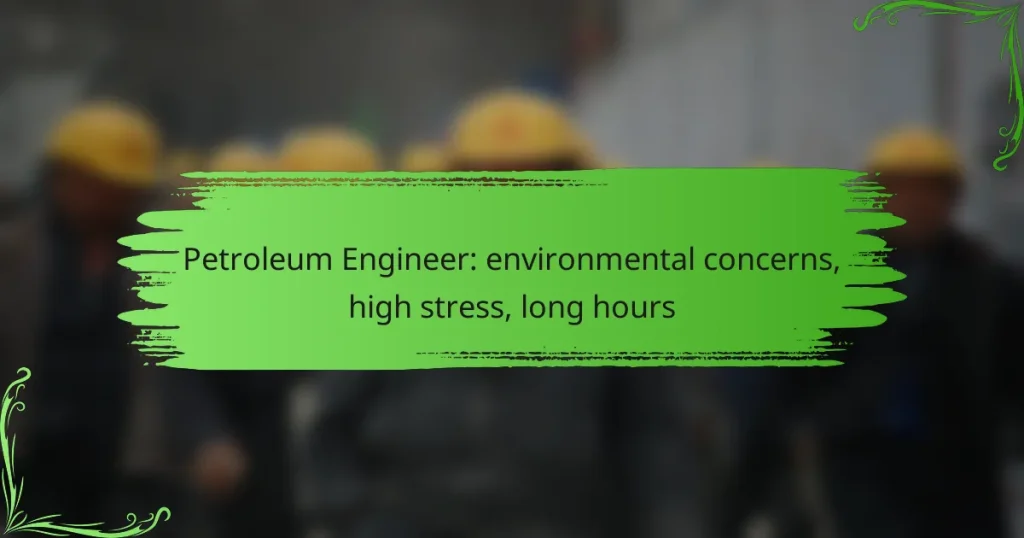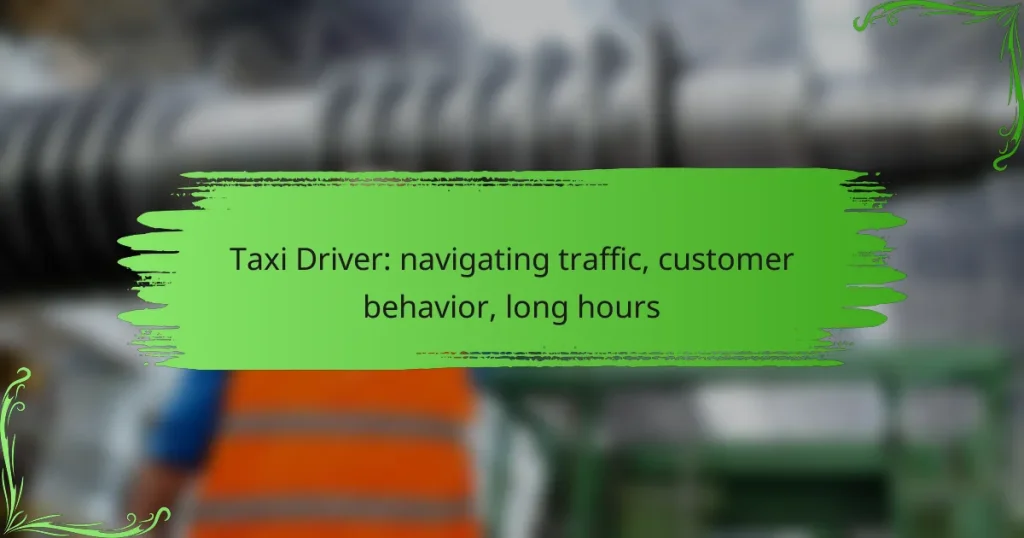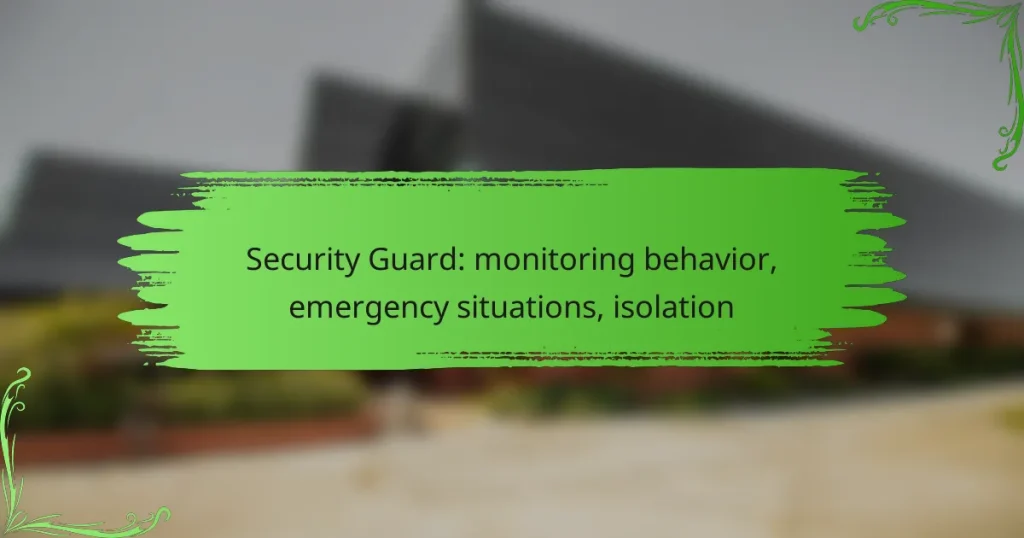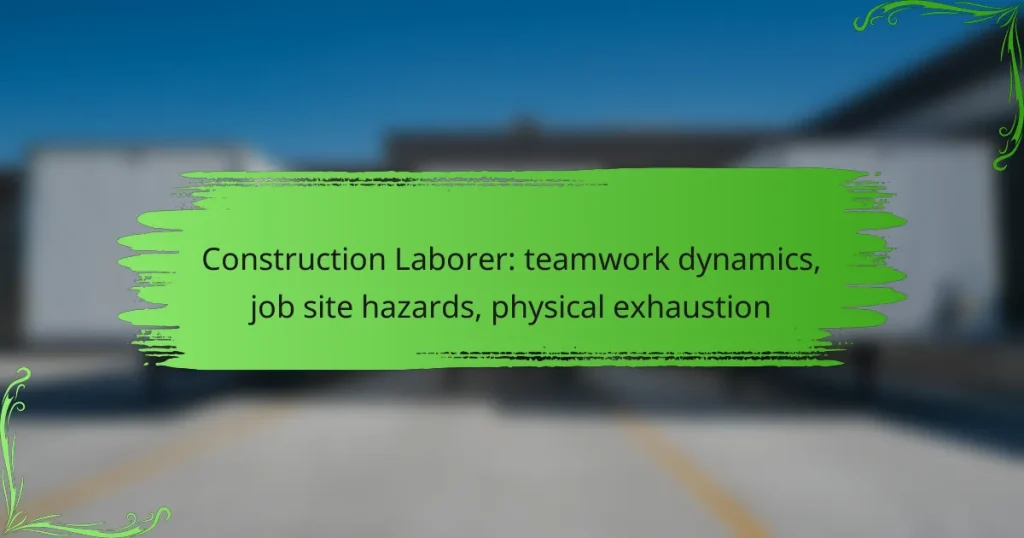Working in some of the worst jobs in America can be a daunting experience, characterized by low pay, high stress, and challenging conditions. Roles such as fast food workers and telemarketers often come with unique difficulties that can affect job satisfaction and overall well-being. Understanding these challenges and exploring coping strategies is essential for improving one’s work experience.
Fast Food Worker: customer complaints, teamwork challenges, burnout
Call Center Agent: handling angry customers, repetitive scripts, stress management
Petroleum Engineer: environmental concerns, high stress, long hours
Janitorial Staff: isolation, night shifts, dealing with difficult clients
Grocery Store Clerk: customer service, stock management, long shifts
Taxi Driver: navigating traffic, customer behavior, long hours
Security Guard: monitoring behavior, emergency situations, isolation
Fast Fashion Retailer: ethical dilemmas, customer interactions, workplace culture
Construction Laborer: teamwork dynamics, job site hazards, physical exhaustion
What are the worst jobs in America?
The worst jobs in America often involve low pay, high stress, and challenging working conditions. Common roles include fast food workers, telemarketers, sanitation workers, retail associates, and construction laborers, each presenting unique difficulties and drawbacks.
Fast food worker
Fast food workers typically face long hours on their feet, dealing with high customer volume and demanding tasks. The pay is often at or near minimum wage, which can make financial stability difficult.
Additionally, the work environment can be stressful, with tight deadlines and the pressure to maintain speed and accuracy. Workers may also encounter challenging customers, which can add to job dissatisfaction.
Telemarketer
Telemarketers often deal with rejection and negative responses from potential customers, leading to a high-stress work environment. Many positions offer low hourly wages plus commission, which can be unpredictable and insufficient.
Moreover, the repetitive nature of the job can lead to burnout, and strict scripts can limit personal interaction, making the role feel monotonous and unfulfilling.
Sanitation worker
Sanitation workers play a crucial role in maintaining public health, but the job can be physically demanding and unpleasant. They often work early mornings or late nights, which can disrupt personal schedules.
Additionally, the work can expose them to hazardous materials and unpleasant odors, which may not be suitable for everyone. Despite these challenges, sanitation workers typically receive benefits and job security due to the essential nature of their work.
Retail associate
Retail associates frequently face long hours, especially during peak shopping seasons, and often work for low wages. The job requires constant interaction with customers, which can be rewarding but also stressful, particularly when dealing with difficult situations.
Furthermore, the pressure to meet sales targets can add to job-related stress. Many retail positions offer limited advancement opportunities, which can lead to job dissatisfaction over time.
Construction laborer
Construction laborers often work in physically demanding conditions, which can be tough on the body. The pay can vary widely, but many positions offer hourly wages that may not reflect the hard work involved.
Safety is a significant concern in this field, as workers are often exposed to hazardous environments. Proper training and adherence to safety regulations are essential to minimize risks and ensure a safe working environment.
What are the common challenges faced in these jobs?
Common challenges in the worst jobs often include low pay, high stress levels, limited opportunities for career advancement, and poor working conditions. These factors can significantly impact job satisfaction and overall well-being.
Low pay
Many of the worst jobs are characterized by low wages that often fall below the living wage in various regions. For instance, positions in retail or fast food may pay minimum wage, which can be insufficient to cover basic living expenses.
Workers in these roles frequently struggle to make ends meet, leading to financial stress. In some cases, employees may rely on government assistance to supplement their income, which can create additional challenges.
High stress levels
High stress levels are prevalent in challenging jobs, often due to demanding workloads, tight deadlines, or difficult customers. Employees may experience constant pressure to perform, which can lead to burnout over time.
For example, workers in emergency services or healthcare often face life-or-death situations, contributing to elevated stress levels. Managing stress through healthy coping mechanisms is crucial for maintaining mental health in these environments.
Limited career advancement
Many low-paying jobs offer minimal opportunities for career advancement, leaving workers feeling stuck. Positions in sectors like fast food or retail may have few promotional pathways, which can lead to frustration and disengagement.
Employees often find themselves in a cycle of low pay and limited growth, making it difficult to improve their financial situation. Seeking additional training or education can help break this cycle and open up new opportunities.
Poor working conditions
Poor working conditions are a significant issue in many of the worst jobs, including inadequate safety measures and uncomfortable environments. For instance, workers in warehouses may face physical hazards or extreme temperatures without proper protection.
In addition to safety concerns, poor working conditions can affect employee morale and productivity. Employers should strive to create a safe and comfortable work environment to enhance overall job satisfaction and retention.
How can one cope with the difficulties of these jobs?
Coping with the challenges of difficult jobs requires a combination of support, stress management, and exploring alternative income sources. By implementing these strategies, individuals can improve their work experience and overall well-being.
Seek support from coworkers
Building a support network among coworkers can significantly alleviate the stress of tough jobs. Sharing experiences and discussing challenges with colleagues fosters a sense of camaraderie and can lead to practical solutions.
Consider organizing informal gatherings or check-ins to strengthen these relationships. This can create a more positive work environment and provide emotional support during tough times.
Practice stress management techniques
Employing stress management techniques is essential for maintaining mental health in challenging jobs. Techniques such as mindfulness, deep breathing exercises, and regular physical activity can help mitigate stress levels.
Set aside time each day for these practices, even if it’s just a few minutes. Incorporating short breaks throughout the workday to stretch or take a walk can also enhance focus and reduce tension.
Explore side hustles
Engaging in side hustles can provide financial relief and a creative outlet, making difficult jobs more bearable. Consider options that align with your skills and interests, such as freelance work, tutoring, or selling handmade goods online.
Evaluate your available time and energy before committing to a side hustle. Aim for opportunities that offer flexibility and can be managed alongside your primary job to avoid additional stress.
What are the long-term effects of working in low-quality jobs?
Working in low-quality jobs can lead to various long-term effects, including mental health challenges, financial instability, and chronic job dissatisfaction. These outcomes can significantly impact an individual’s quality of life and overall well-being.
Impact on mental health
Low-quality jobs often contribute to increased stress, anxiety, and depression. The lack of job security and poor working conditions can exacerbate these mental health issues over time.
Employees in such positions may experience feelings of hopelessness and low self-esteem, which can further hinder their ability to seek better opportunities. It’s crucial to recognize these signs early and seek support when needed.
Financial instability
Low-quality jobs typically offer lower wages and fewer benefits, leading to financial instability. Many workers may struggle to cover basic living expenses, which can result in debt and limited savings.
In the long run, this financial strain can hinder personal growth and limit access to essential services, such as healthcare and education. It’s important to create a budget and explore additional income sources to mitigate these challenges.
Job dissatisfaction
Job dissatisfaction is common among those in low-quality positions, as they often lack opportunities for advancement and personal fulfillment. This dissatisfaction can lead to high turnover rates and a lack of commitment to the job.
To combat this feeling, individuals should actively seek out training or educational opportunities that can enhance their skills and open doors to better employment options. Networking and connecting with others in their field can also provide valuable insights and support.
What skills can be developed from these experiences?
Working in challenging jobs can help individuals develop valuable skills that are applicable in various fields. These experiences often enhance interpersonal abilities, improve efficiency, and foster resilience.
Customer service skills
Jobs that involve direct interaction with customers often require strong customer service skills. These include effective communication, problem-solving, and empathy, which are essential for addressing customer needs and concerns.
For instance, dealing with difficult customers can teach you how to remain calm under pressure and find solutions quickly. Practicing active listening and responding appropriately can lead to improved customer satisfaction and loyalty.
Time management
Many challenging jobs demand excellent time management skills to handle multiple tasks efficiently. Prioritizing tasks and setting realistic deadlines are crucial for meeting job expectations and maintaining productivity.
For example, in a fast-paced environment, you might need to balance customer inquiries with administrative duties. Using tools like to-do lists or time-blocking techniques can help you stay organized and focused, ensuring that you meet your responsibilities without feeling overwhelmed.









